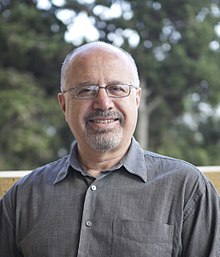
Muhammad Anwar el-Sadat was an Egyptian politician and military officer who served as the third president of Egypt, from 15 October 1970 until his assassination by fundamentalist army officers on 6 October 1981. Sadat was a senior member of the Free Officers who overthrew King Farouk in the Egyptian Revolution of 1952, and a close confidant of President Gamal Abdel Nasser, under whom he served as Vice President twice and whom he succeeded as president in 1970. In 1978, Sadat and Menachem Begin, Prime Minister of Israel, signed a peace treaty in cooperation with United States President Jimmy Carter, for which they were recognized with the Nobel Peace Prize.

The Camp David Accords were a pair of political agreements signed by Egyptian President Anwar Sadat and Israeli Prime Minister Menachem Begin on 17 September 1978, following twelve days of secret negotiations at Camp David, the country retreat of the President of the United States in Maryland. The two framework agreements were signed at the White House and were witnessed by President Jimmy Carter. The second of these frameworks led directly to the 1979 Egypt–Israel peace treaty. Due to the agreement, Sadat and Begin received the shared 1978 Nobel Peace Prize. The first framework, which dealt with the Palestinian territories, was written without participation of the Palestinians and was condemned by the United Nations.

Daniel Charles Kurtzer is an American former diplomat. He served as U.S. ambassador to Egypt during the term of President Bill Clinton, and was the U.S. ambassador to Israel from 2001 to 2005 during the term of President George W Bush.
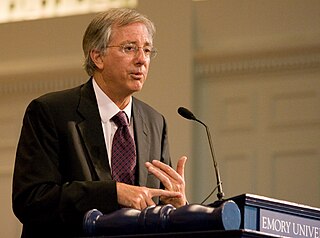
Dennis B. Ross is an American diplomat and author. He has served as the Director of Policy Planning in the State Department under President George H. W. Bush, the special Middle East coordinator under President Bill Clinton, and was a special adviser for the Persian Gulf and Southwest Asia to the former Secretary of State Hillary Clinton.
The Rogers Plan was a framework proposed by United States Secretary of State William P. Rogers to achieve an end to belligerence in the Arab–Israeli conflict following the Six-Day War and the continuing War of Attrition.

Martin Sean Indyk is an American diplomat and foreign relations analyst with expertise in the Middle East. He was a distinguished fellow in International Diplomacy and later executive vice president at the Brookings Institution in Washington, D.C from 2001-2018. He took leave from the Brookings Institution to serve as the U.S. Special Envoy for Israeli–Palestinian Negotiations from 2013 to 2014. He is currently a distinguished fellow at the Council on Foreign Relations.
Kenneth W. Stein is a professor known for studying the Arab–Israeli conflict, in both historical and social-economic context. He spent many years working with the Carter Center from the 1980s, before cutting ties in 2006; and decades teaching at Emory University starting in 1977. His life has been filled with teaching and interdisciplinary study of the Middle East with the publication of many books on the subject of Israel, the Middle East and the foundations of the Arab–Israeli conflict.
The Begin–Sadat Center for Strategic Studies is an Israeli think tank affiliated with Bar-Ilan University and supported by the NATO Mediterranean Initiative, conducting policy-relevant research on Middle Eastern and global strategic affairs, particularly as they relate to the national security and foreign policy of Israel and regional peace and stability. The center's mission is to contribute to promoting peace and security in the Middle East, through policy-oriented researches on national security in the Middle East. It is located at the Social Sciences Faculty of Bar-Ilan University. The center was founded by Thomas Hecht, a Canadian-Jewish leader, and was dedicated to Menachem Begin and Anwar Sadat, who signed the Egypt–Israel peace treaty, the first peace agreement ever signed between Israel and an Arab country.
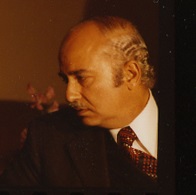
Ismail Fahmy was an Egyptian diplomat and politician. He served as ambassador to Austria (1968–1971), tourism minister (1973), foreign minister (1973–1977) and deputy prime minister (1975–1977). He was awarded a professorship. He resigned from the government in 1977 to protest Anwar Sadat's visit to Jerusalem. Although he was a supporter and confidant of Sadat, later he became sharply critical of his policies and decision making.

Bruce O. Riedel is an American expert on U.S. security, South Asia, and counter-terrorism. He is currently a senior fellow in the Saban Center for Middle East Policy at the Brookings Institution, and a professor at Johns Hopkins School of Advanced International Studies. He also serves as a senior adviser at Albright Stonebridge Group.

Aaron David Miller is an American Middle East analyst, author, and negotiator. He is a senior fellow at the Carnegie Endowment for International Peace, focusing on U.S. foreign policy. He previously was vice president for new initiatives at the Woodrow Wilson International Center for Scholars, and has been an advisor to both Republican and Democratic secretaries of state. He is a Global Affairs Analyst for CNN.

Egypt and the United States formally began relations in 1922 after Egypt gained nominal independence from the United Kingdom. Relations between both countries have largely been dictated by regional issues in the Middle East such as the Israeli–Palestinian conflict and Counterterrorism. But also domestic issues in Egypt regarding the country's human rights record and American support for the regimes of Hosni Mubarak and Abdel Fattah el-Sisi which the United States had come under controversy for in the aftermath of the 2011 Egyptian Revolution, and with many dissents of the current regime describing Sisi's rule as tyrannical.
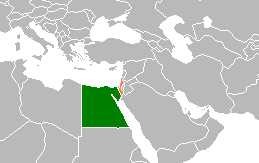
Egypt–Israel relations are foreign relations between Egypt and Israel. The state of war between both countries which dated back to the 1948 Arab–Israeli War culminated in the Yom Kippur War in 1973, and was followed by the 1979 Egypt–Israel peace treaty a year after the Camp David Accords, mediated by U.S. president Jimmy Carter. Full diplomatic relations were established on January 26, 1980, and the formal exchange of ambassadors took place one month later, on February 26, 1980, with Eliyahu Ben-Elissar serving as the first Israeli Ambassador to Egypt, and Saad Mortada as the first Egyptian Ambassador to Israel. Egypt has an embassy in Tel Aviv and a consulate in Eilat. Israel has an embassy in Cairo and a consulate in Alexandria. Their shared border has two official crossings, one at Taba and one at Nitzana. The crossing at Nitzana is for commercial and tourist traffic only. The two countries' borders also meet at the shoreline of the Gulf of Aqaba in the Red Sea.

Egypt–Iraq relations are foreign relations between Egypt and Iraq. Iraq's relations with the Arab world have been extremely varied. The relationship between Iraq and Egypt soured in 1977 when the two nations broke relations with each other following Egypt's peace accords with Israel. In 1978, Baghdad hosted an Arab League summit that condemned and ostracized Egypt for accepting the Camp David accords. However, Egypt's strong material and diplomatic support for Iraq in its war with Iran led to warmer relations and numerous contacts between senior officials, despite the continued absence of ambassadorial-level representation. Since 1983, Iraq has repeatedly called for the restoration of Egypt's "natural role" among Arab countries. In January 1984, Iraq successfully led Arab efforts within the OIC to restore Egypt's membership.
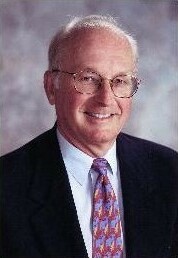
William B. Quandt is an American scholar, author, and professor emeritus in the Department of Politics at the University of Virginia. He previously served as senior fellow in the Foreign Policy Studies Program at the Brookings Institution and as a member on the National Security Council in the Richard Nixon and Jimmy Carter administrations. He was actively involved in the negotiations that led to the Camp David Accords and the Egypt–Israel peace treaty. His areas of expertise include Algeria, Egypt, Israel, Palestine, the Israeli–Palestinian peace process, and U.S. foreign policy.

The history of Egypt under Anwar Sadat covers the eleven year period of Egyptian history from Anwar Sadat's election as President of Egypt on 15 October 1970, following the death of President Gamal Abdel Nasser, to Sadat's assassination by Islamist fundamentalist army officers on 6 October 1981. Though presenting himself as a Nasserist during his predecessor's lifetime, upon becoming President, Sadat broke with many of the core tenets of the domestic and foreign policy ideology that had defined Egyptian politics since the Egyptian Revolution of 1952. In addition to abandoning many of Nasser's economic and political principles via the Infitah policy, Sadat ended Egypt's strategic partnership with the Soviet Union in favor of a new strategic relationship with the United States, initiated the peace process with the State of Israel in exchange for the evacuation of all Israeli military forces and settlers from Egyptian territory, and instituted a form of politics in Egypt that, whilst far removed from Egypt's pre-revolution democratic system, allowed for some multi-party representation in Egyptian politics. Sadat's tenure also witnessed a rise in governmental corruption, and a widening of the gulf between rich and poor, both of which would become hallmarks of the presidency of his successor, Hosni Mubarak.

Egypt–Syria relations refers to the bilateral relations between the Arab Republic of Egypt and the Syrian Arab Republic. Egypt has an embassy in Damascus. Syria has an embassy in Cairo. Both countries are members of the Arab League.

Frederic Wehrey is an American scholar of Middle East affairs, expert on Libyan and Gulf politics, and Senior Fellow at the Middle East Program at the Carnegie Endowment for International Peace. Wehrey earned a PhD in international relations from Oxford University.
